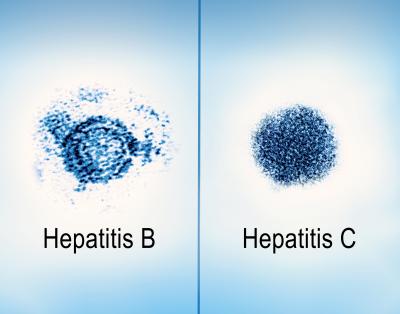Viral hepatitis is an inflammatory liver disease caused by infection with any of the known hepatitis viruses—A, B, C, D, and E. Most of the global viral hepatitis burden is from hepatitis B and C, which affect 354 million people and result in 1.1 million deaths annually. The Centers for Disease Control and Prevention estimates that in 2020 there were 14,000 and 50,300 new acute infections of hepatitis B and C in the United States, respectively, while at least 880,000 people in the country were living with chronic (long-term) hepatitis B and 2.4 million people had chronic hepatitis C. About half of those with viral hepatitis are unaware of their infection. Chronic and persistent inflammation from the disease can lead to liver failure, cirrhosis, or liver cancer. Viral hepatitis affects all ages and there are pronounced inequities in disease outcomes in the United States. Hepatitis B and C disproportionately affect people living with HIV, and HIV increases the rate of complications and death in people with viral hepatitis.
On this World Hepatitis Day, the National Institute of Allergy and Infectious Diseases (NIAID), part of the National Institutes of Health, shares a snapshot of its investments in basic (laboratory), preclinical (laboratory/animal), and clinical (human) research to improve screening, prevention and treatment for hepatitis B and C. Scientists in the Hepatic Pathogenesis and Structural Virology sections of NIAID’s Laboratory of Infectious Diseases conduct basic and translational research to better understand hepatitis B and C disease progression, clarify the role of hepatitis viruses in liver cancer, and inform discovery of new vaccines, medicine and technologies. Both NIAID’s Division of AIDS (DAIDS) and the Division of Microbiology and Infectious Disease (DMID) support scientific programs focused on hepatitis B and C research and curative strategies, reflecting the widespread impact of viral hepatitis and the urgent need for safe and effective interventions.
Finding a hepatitis B cure
Hepatitis B continues to cause disease and death even though a highly effective preventive vaccine has been available for decades. Some people with acute hepatitis B can naturally clear the infection. In others, chronic HBV requires lifelong treatment to suppress the virus. More research is need to identify novel therapeutic options and strategies to minimize the treatment burden and, ideally, identify a cure for hepatitis B. NIAID is supporting research on a variety of basic, translational and therapeutic science concepts designed to cure hepatitis B, including in people with HIV. DMID recently announced an initiative to develop new antiviral drugs that can eliminate hepatitis B genetic material from infected cells, and DAIDS is complementing that work with clinical studies of therapeutic agents and vaccines that will include evaluation of their safety and efficacy in people living with HIV.
Streamlining the hepatitis C response
In 2011, direct-acting antivirals (DAA) revolutionized hepatitis C therapy and have since been observed to cure 95% of cases. Despite DAA availability for more than a decade, only one in three people in the United States diagnosed with hepatitis C receive curative treatment. These circumstances underscore the importance of increasing access to and convenience of diagnosis and treatment, as well as the need for a preventive vaccine. Developing a hepatitis C vaccine is challenging because of the genetic diversity of hepatitis C circulating in the population, necessitating broadly reactive vaccine technology. DMID awarded multiple grants to advance new hepatitis C vaccine designs in 2021. To better enable people to know their hepatitis C status, NIAID and other NIH institutes are supporting discovery of improved point-of-care hepatitis C testing that could be used in community and healthcare settings alike, and eliminate the need to wait for laboratory-based diagnostics. They are also supporting development of self-testing technology that people can use to screen themselves. DAIDS will soon launch an initiative to develop long-acting DAAs that could reduce the number of doses required for a full course of therapy. A recent NIAID-supported study showed even with an existing 84-tablet DAA regimen, most people with hepatitis C experienced favorable treatment outcomes without in-person healthcare visits for the duration of treatment. These innovations in diagnostics and treatment strategies aim to enable a “single-encounter cure” wherein a person could learn their hepatitis C status and collect their treatment in one healthcare visit.
These research priorities are among the current efforts in NIAID’s 60-year pursuit of scientific advances to improve the health outcomes of people with viral hepatitis. For more information on US government research to help eliminate viral hepatitis, please visit:


